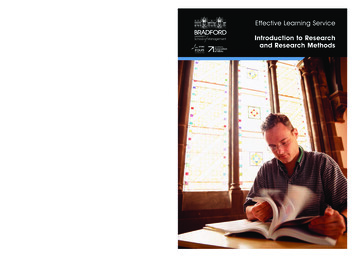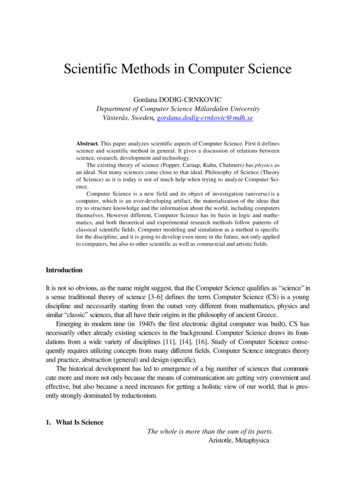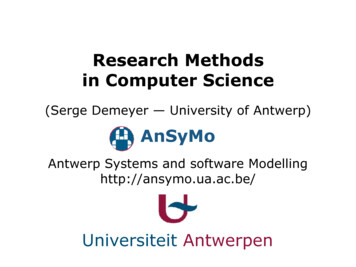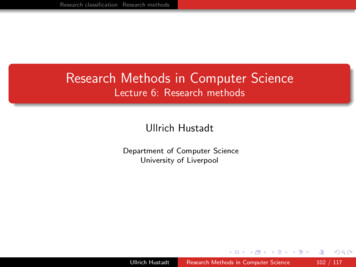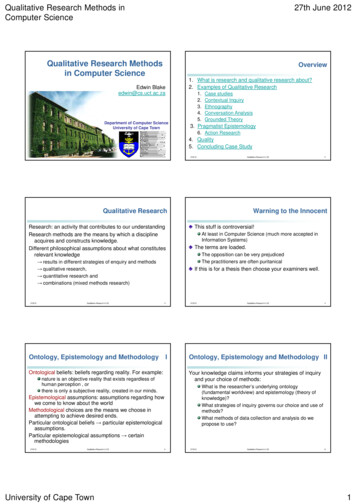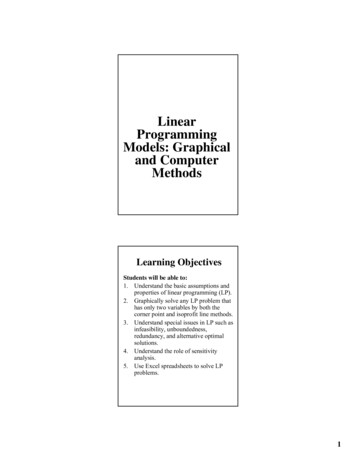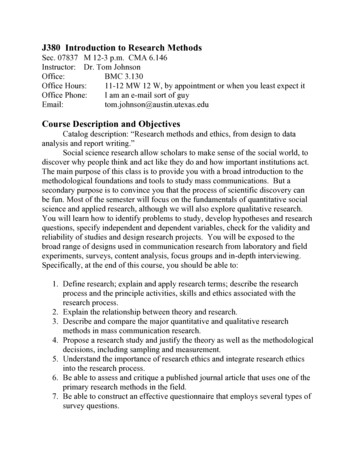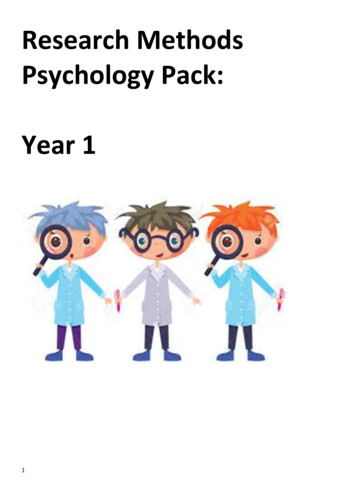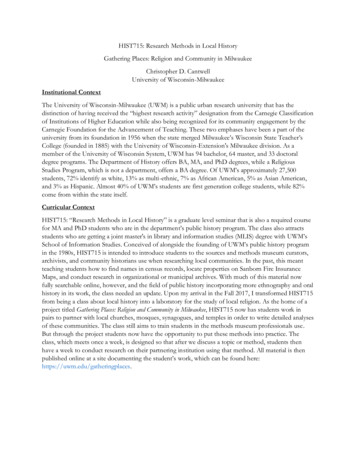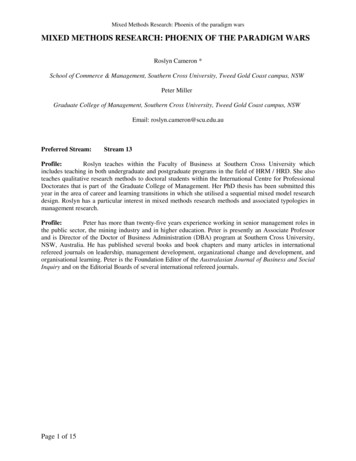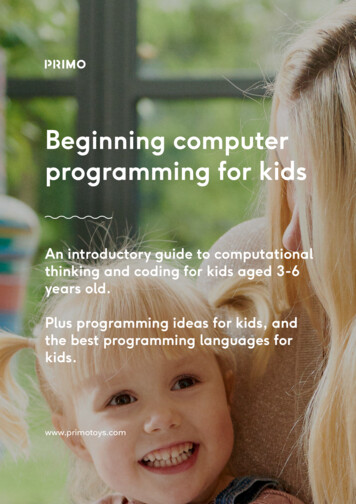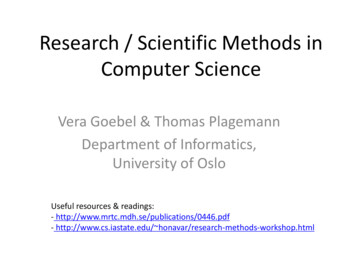
Transcription
Research / Scientific Methods inComputer ScienceVera Goebel & Thomas PlagemannDepartment of Informatics,University of OsloUseful resources & readings:- http://www.mrtc.mdh.se/publications/0446.pdf- http://www.cs.iastate.edu/ honavar/research-methods-workshop.html
What is Science?Computer Science ?
Sciences – Objects - Methods
The Scientific Method1.Pose the question in the context of existing knowledge (theory & observations).- new question that old theories are capable of answering (usually the case), or- question that calls for formulation of a new theory.2. Formulate a hypothesis as a tentative answer.3. Deduce consequences and make predictions.4. Test the hypothesis in a specific experiment/theory field.The new hypothesis must prove to fit in the existing world-view .In case the hypothesis leads to contradictions and demands a radical change in the existing theoreticalbackground, it has to be tested particularly carefully.The new hypothesis has to prove fruitful and offer considerable advantages, in order to replace theexisting scientific paradigm.Rule: loop 2-3-4 is repeated with modifications of the hypothesis until the agreement is obtained, whichleads to 5. If major discrepancies are found the process must start from the beginning, 1.5. When consistency is obtained the hypothesis becomes a theory and provides a coherent set ofpropositions that define a new class of phenomena or a new theoretical concept.The results have to be published.Theory at that stage is subject of process of ”natural selection” among competing theories (6). A theory isthen becoming a framework within which observations/theoretical facts are explained and predictionsare made. The process can start from the beginning, but the state 1 has changed to include the newtheory/improvements of old theory.
Diagram: Scientific Method
Science – Research - Technology
Relations: Science, Technology, .
What is Computer Science?Discipline of Computing: Informatics? Computer Science Computer Engineering Software Engineering Information SystemsDefinitions:1. The discipline of Computing is the systematic study of algorithmic processes thatdescribe and transform information: their theory, analysis, design, efficiency,implementation, and application.2. Computer Science is the study of phenomena related to computers, Newell, Perlisand Simon, 1967.3. Computer Science is the study of information structures, Wegner, 1968, Curriculum68.4. Computer Science is the study and management of complexity, Dijkstra, 1969.5. Computer Science is the mechanization of abstraction, Aho and Ullman 1992.6. Computer Science is a field of study that is concerned with theoretical and applieddisciplines in the development and use of computers for information storage andprocessing, mathematics, logic, science, and many other areas.
Scientific Methods of Computer Science ModelingTheoretical Computer ScienceExperimental Computer ScienceComputer Simulation
Modeling - 1
Modeling - 2 How to model?– What to take into account /neglect? - features Is the model appropriate?– Purpose, resolution, level of abstraction Aspects of features / behavior?Difference to reality?Validation? Are the results valid?Special constraints
Theoretical CS Logic and Mathematics– Objects (axioms)– Operations (rules) Conceptualization, modeling, and analysis:data models, algorithms, complexity– Data model: values of data objects and operations Different levels of abstraction Efficiency Methodologies: iteration, recursion, induction
Experimental CS Information processes: formulate phenomena,explanations, testing Experiments: theory testing, exploration– Theoretical predictions - Reality– Edsger Dijkstra: “ an experiment can only showthe presence of bugs (flows) in a theory, not theirabsence.”
Computer Simulation - 1 Computional Science
Computer Simulation - 2 Investigations beyond current experimentalcapabilities Study phenomena that cannot be replicated inlaboratories Guided by theory and experimental results(feedback loop) Simulate phenomena and processes
Thesis Proposal (multiple iterations, 10-15 pages)6 essential questions that must be answered:1. What is the problem? (Literature!)2 possibilities:- new problem - find a solution- known problem & existing solutions - find a better solution2. What has been done (by others) already to solve thisproblem? (Literature!)3. What is missing? What is not good in otherapproaches/solutions? (Literature!)4. What are you planning to do?5. What will be the result(s) in the end?6. Rough idea (description) of the way to the end - finished PhDthesis (to reach the goal, i.e. solve the problem)includes time plan:- what has already been achieved- what has still to be done
3. Computer Science is the study of information structures, Wegner, 1968, Curriculum 68. 4. Computer Science is the study and management of complexity, Dijkstra, 1969. 5. Computer Science is the mechanization of abstraction, Aho and Ullman 1992. 6. Computer Science is a field of study that is concerned with theoretical and applied
